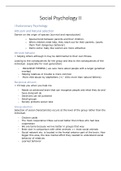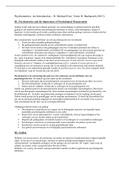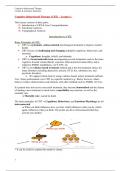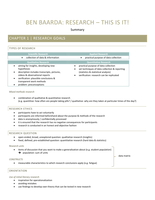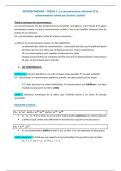Resume
Summary Change management project 7
- Cours
- Établissement
Project 7 change management van de opleiding attraction and theme park management. Beide samenvattingen zijn een combinatie van lectures en tips en tricks van leraren. Beide samenvattingen zijn in het engels!
[Montrer plus]





